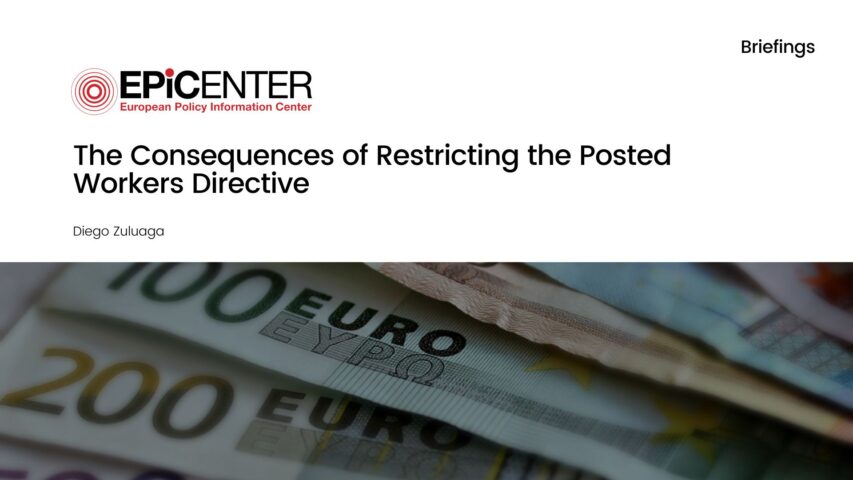The Consequences of Restricting the Posted Workers Directive

The Consequences of Restricting the Posted Workers Directive
October 2017
Posted workers are temporarily sent from one member state to another, usually for projects of short duration. There were 1.1. million posted workers in the EU in 2015, equivalent to 0.4 per cent of all full-time employment.
There has been economic convergence between member states, but large differentials remain: worker productivity is four times higher in Ireland than in Latvia. This matters because productivity determines remuneration.
The conventional narrative is that posted workers mostly move from poor member states to rich ones. The data suggest otherwise: 80 per cent of postings in the EU-15 are from other EU-15 countries. OECD data also show no pattern to suggest newer member states regulate labour markets less than older ones.
Restricting the Posted Workers Directive will weaken the ability of firms from low-productivity member states to compete, thereby undermining economic convergence and the single market.
Download or share this publication
View the PDF
EPICENTER publications and contributions from our member think tanks are designed to promote the discussion of economic issues and the role of markets in solving economic and social problems. As with all EPICENTER publications, the views expressed here are those of the author and not EPICENTER or its member think tanks (which have no corporate view).



